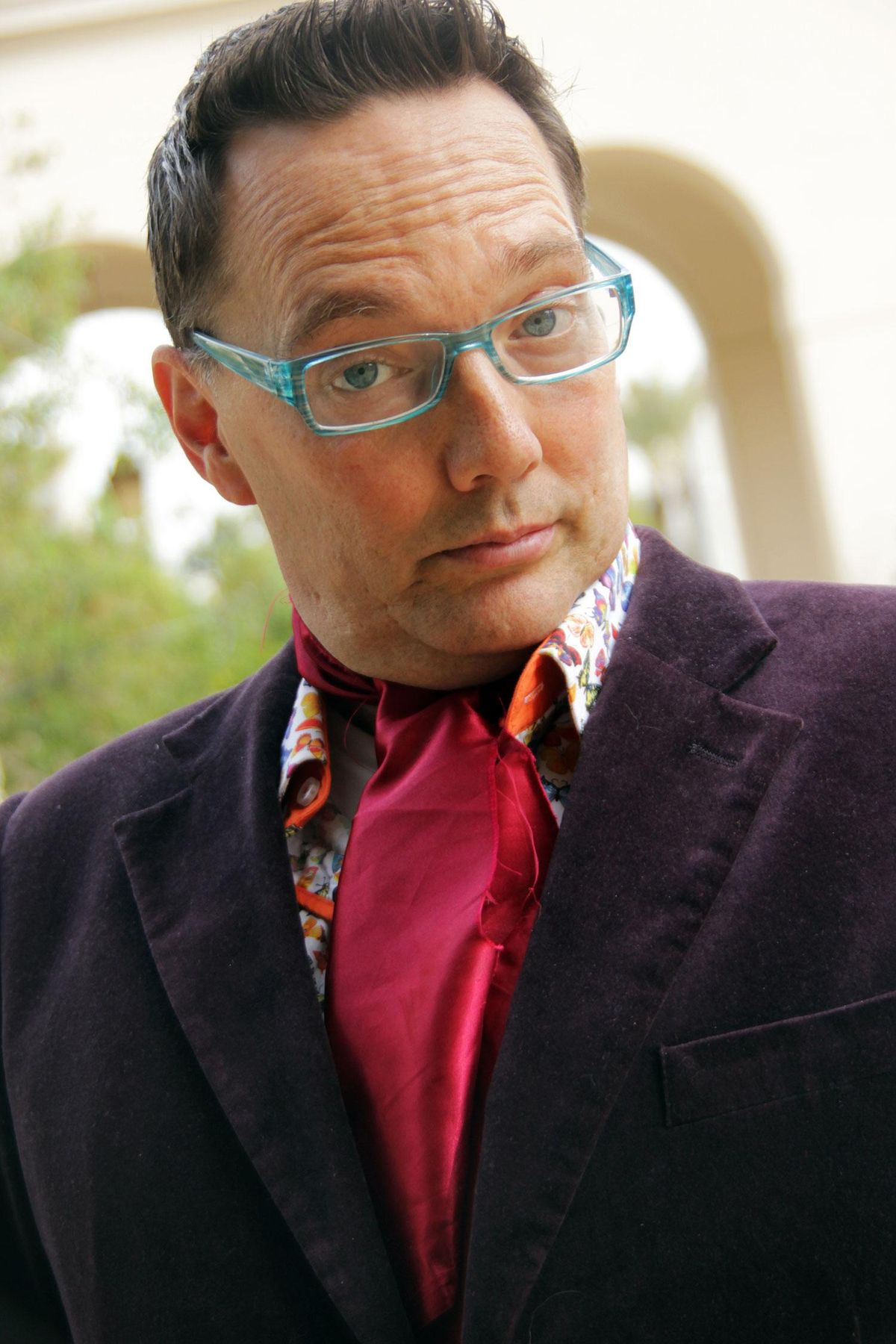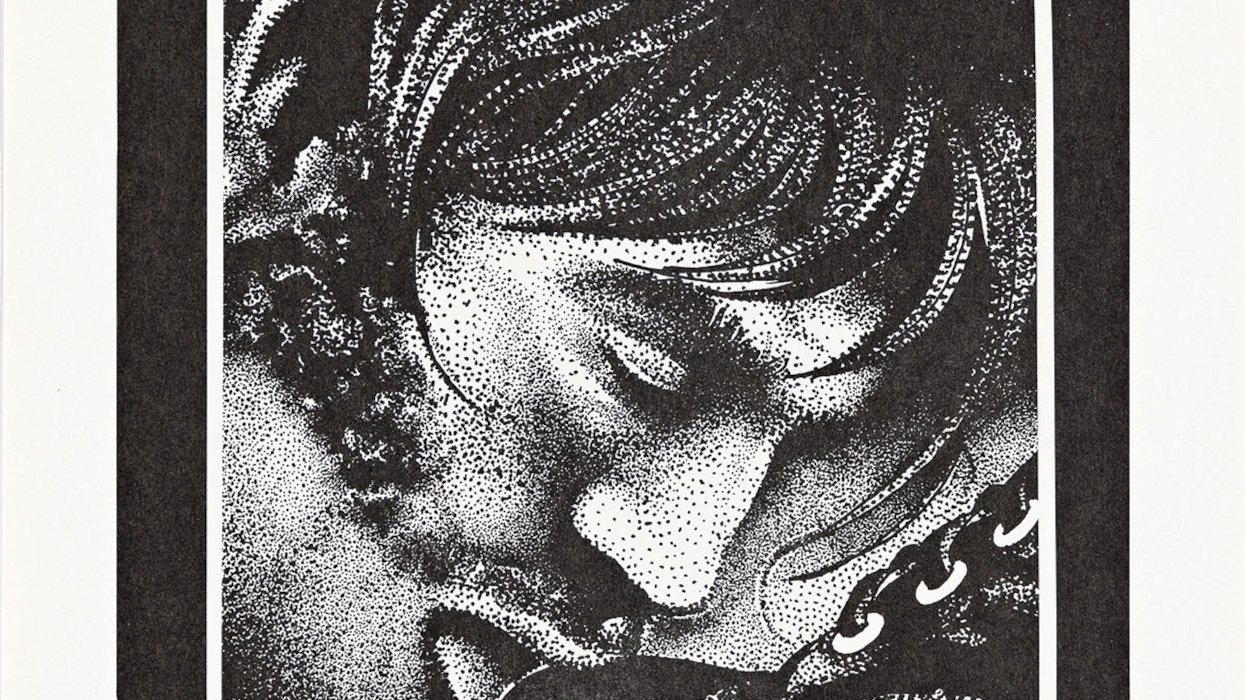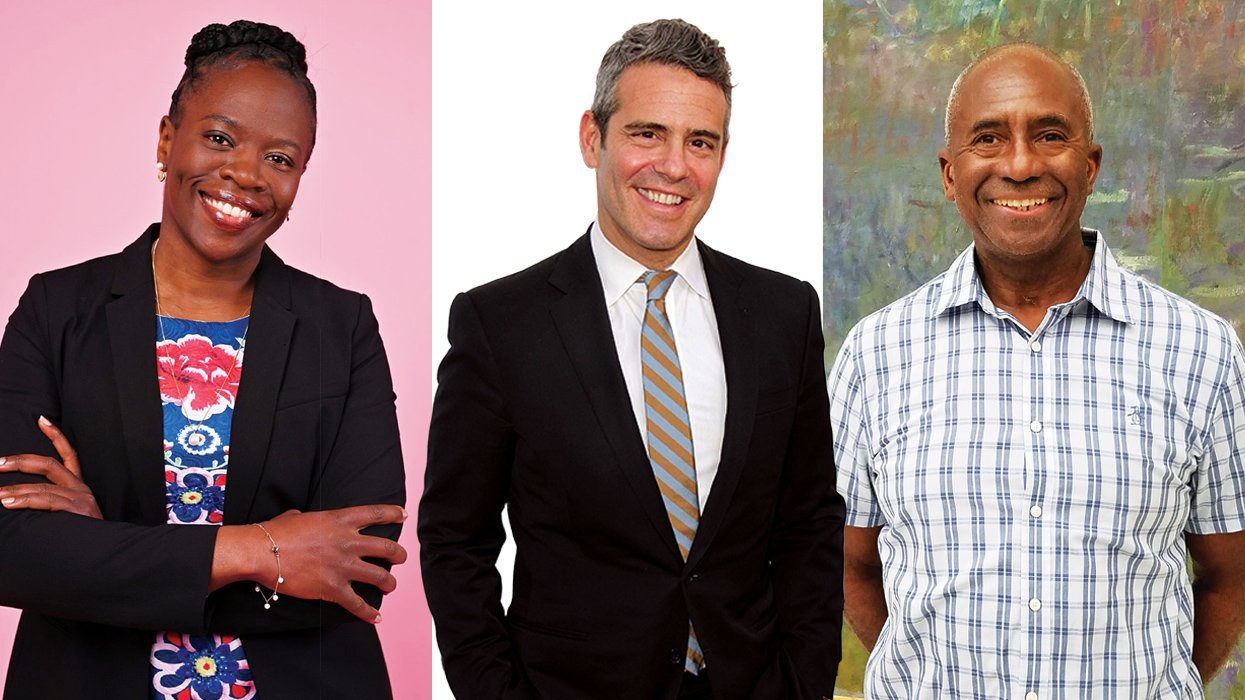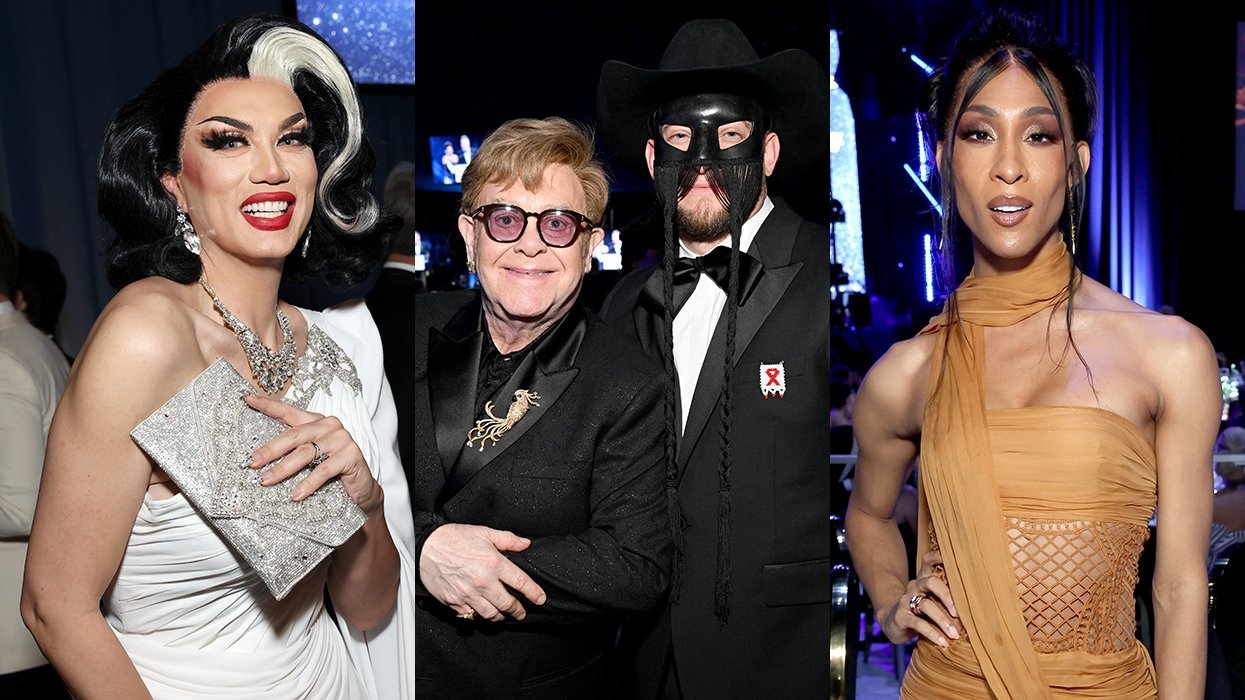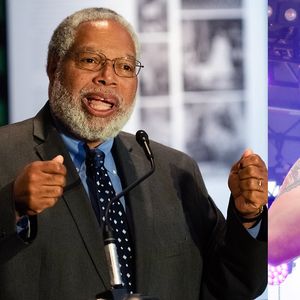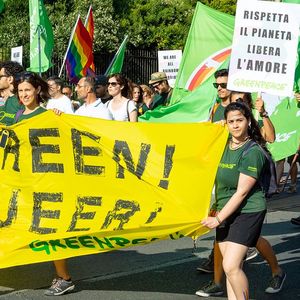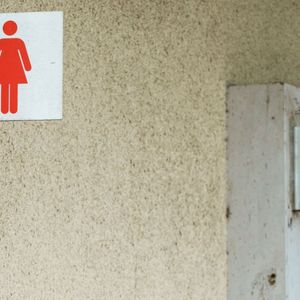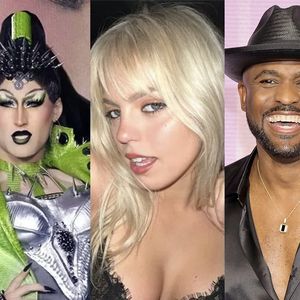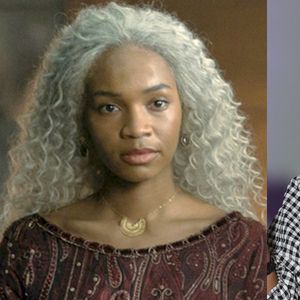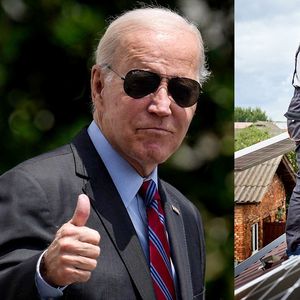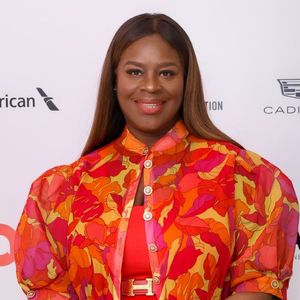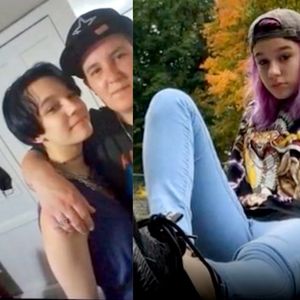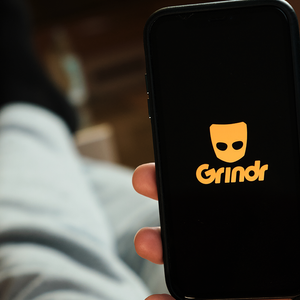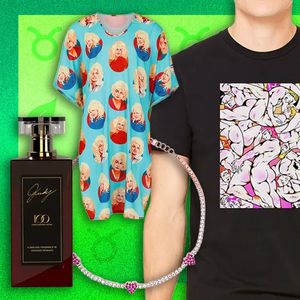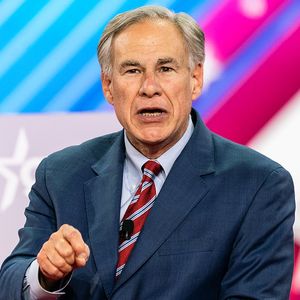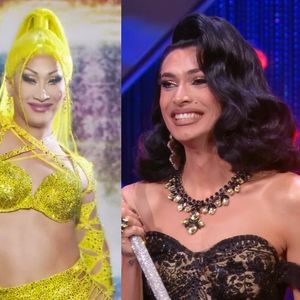To call Mike Hennessy a miracle is an understatement. The actor, comedien, children's entertainer, and AIDS activist has been to hell and back (literally). But as he says to Plus, it was his faith in God and love for comedy that gave him the wings he desperately needed to make it out alive, prompting a new name: Miracle Mike.
Within a few years of being newly diagnosed, Hennessy had stage 3 HIV — with only four T cells left to account for. Despite the world's expectations of him being another statistic, Hennessy refused to play victim. He quit his stock market job in Boston and moved to Los Angeles so he can entertain people and share his story. His Facebook group Positive Actors in Action hopes to create a place for actors living HIV to discuss ways Hollywood can be more inclusive telling their stories.
After his 26-year journey with AIDS, Hennessy has become a leader in spreading HIV awareness around the world through organizations like Life Group LA and the Thrive Tribe Foundation.
We sat with Hennesy to discuss his remarkable story, and how he hopes other stories like his can change the world.
Plus: Not a lot of people can say they went from being HIV-positive, and nearly succumbing to the disease to coming back to being HIV-positive and undetectable. Take me back to the early years when you were first diagnosed.
Mike Hennessy: I was diagnosed in 1990. 1997, right after my mom passed away, was my first diagnosis with full blown AIDS. They gave medications and I was fine, but a year later my grandmother died. So I had the two women in my life die within a year, and I just went all out. I was down for the count. I was in the hospital about 13 times over the course of 15 years, dying from something AIDS-related.
I had West Nile at one point, and I had viral meningitis as well. I was constantly fighting; every six months it felt like I wasn’t coming back. I attend Agape with Reverend Michael Beckwith, and every time I would talk to him about AIDS he’d say, “Stop saying you have AIDS.” Then I was in an acting class in January 2011 studying with Dee Wallace. She’s been my mentor and friend for over 20 years. In class she scolded me in a scene. I started crying and said, “I just want to be a great actor.” And all of a sudden I had an “A-ha” moment. I kept saying I want to be a great actor. I knew it was connected to my AIDS, and I said this in front of all the students. I keep saying I want to be healed, but I need to claim that I am healed.
In that moment, I had this switch in my brain. Every day I’d say: I’m healing from AIDS, I’m healing from AIDS, I’m healing from AIDS. Then one day I got tested and my doctor said, “You don’t have AIDS anymore,” so I was like, What!
So you believe that going through a mental healing process effected the way your body reacted to the virus?
Absolutely. It was a profound extraordinary effect. It was like Louis Hayes said: You change your story, you change your life. It’s like the people who walk around saying, I’m broke, I’m broke, and its like, why don’t you have money? I kept giving myself an apparition instead of an affirmation. I was very proud of having AIDS. I’d go out and share my story and speak to people, start charities for the homeless. I kept saying I have AIDS and I was very proud. Then I thought, wait a minute it’s time to tell a different story. That moment in acting class, it was so pivotal. I got it. I thought, wow that is what’s going on. From that moment on I never said I had AIDS again, just plain old HIV now.
So having HIV became an upgrade! There’s comedy to that. You have to be able to laugh in order to heal, don’t you?
Oh yes, and that’s how I started healing myself at the beginning was through comedy. When I found out I was positive I started doing a lot of comedy. I would do stand up in Boston so I can heal myself and make myself feel better – and it did. My T cells went from 300 to 700 to 900 to 1200, and my nurse practitioner was blown away. She watched me go through this whole transition and she’d come out to my shows. After a year, my T cells were going up, and we both cried because she said, “You have 1200 now… I have to tell you I left the church (she was a lesbian), but watching you and your faith in God changed my life and now my lover and I are both leaders in the gay church of Boston.” I grabbed her hand and started and said if the only reason I had HIV was to bring you back to your spiritual journey to Jesus and God, I can die today and I’m done. But here I am 20 years later, so I still got stuff to do.
I can understand how that led you to being an entertainer at children’s parties: to spread the laughter.
Absolutely. I was doing big things with children. I wrote a book and wrote some things for kids. I came to LA to make a difference in TV and do some stand up. I left the stock market behind. They wanted me to work for them in LA, but it was a whole different story I wanted to write so it just wasn’t for me.
When you discovered you had HIV in 1990, were you working at the stock market?
Yes I was working at a desk and I started getting really tired and sick, and something was happening to my body. I got tested for mono, for everything! After three months of testing I finally said to my nurse, “Just give me the [HIV] test.” I had this feeling that’s what it was. And so we did the test and after I asked her if if I can get tested again. But she said once you’re HIV-positive, you’re HIV-positive. Nothing is going to change. Then I said, “What about miracles from God?” She said bring it on.
I haven’t drank or done drugs since I was a teenager, so I was already sober. For me, the process was a little easier because [my friends] loved to party at the time. None of them are here anymore sadly. They kept partying, saying, “Well I’m gonna be dead anyway.” Sadly they’re all gone except for two, and it makes me sad they didn’t hang out long enough to see the wonderful medicine we have now.
Many long-term survivors can relate to that sadness. At the time, social stigma bled into how we perceived even ourselves. We thought we were disposable.
Like lepers.
How did you maneuver around that kind of environment?
I was going to school to be a missionary, and after [HIV] happened, at one point I gave up all my gay friends and decided to finish my missionary school. I just had one year to finish. But I just kept believing God is gonna do great things with what I had. This sounds corny but I kept getting tested every six months, saying, oh God’s gonna take care of it. But of course it was always the same result.
I was hoping there’d be some divine intervention, but God always has had great plans for me. I’ve had a great life in spite of my status. I’ve worked with celebrities; I was in Grandfathered with John Stamos (I was a co-star). I got to improv some lines. My famous line was, “The tiramisu was to die for,” and John walked me out with my lover in the scene.
Oh that’s great!
Yeah, so being HIV-positive was a huge blessing in disguise.
It forces you to look at your mortality, doesn’t it? In a way that inspires to understand your strength and value in the world.
Exactly!
What is it like being HIV-positive in Hollywood?
You know, as an actor it’s been pretty empowering when I share my story with people. I stood up at a SAG-AFTRA meeting about five years ago and said we need to have more HIV and AIDS presence in movies and in TV. I said I feel like I’m not represented, as someone who had AIDS at the time. I said I feel like there are people who play the roles but they’re not actually HIV-positive. I actually have HIV and AIDS. I want those roles offered to me first!
That takes a lot of courage.
Yeah. From that I discussed with other people, we recently formed a group on Facebook called Positive Actors in Action. It’s a group of us that are reaching and putting together info so producers and directors know that we’re here and we are a presence in Hollywood. We want our voices to be heard, our stories to be told.
I went to the World AIDS Day event at SAG-AFTRA and brought up this whole process, and a gentleman was there who wrote for ER. He wrote the HIV storyline of the Gloria character that was on the air for five years. He said the best way to do it would be to contact producers and let them know you’re here. And someone from SAG-AFTRA asked me if I would address the actors who do have HIV and are terrified to talk about it, so I will do a representation on that. Then we were contacted by Hollywood Reporter, and they wanted to know about the group of HIV actors who are putting themselves out there. We’re doing a lot for the stigma, and when people hear my story they’re even more encouraged because here’s someone with AIDS, with only 4 T cells, out here trying to make a difference in the world.
Do you think this generation is a little bit jaded as far as prevention, and if so what do you think needs to change about that attitude?
That’s a great question. I believe in some areas of the country they definitely are jaded because they didn’t see what we saw. They didn’t have 20 of their friends die in six years. However, that being said I’ve encountered a lot of young men who are extraordinary. I’m part of this group called the Thrive Tribe, and they are all about getting the education out and letting people know about it, letting the young kids know this is what happened and this is what’s going on. I believe there needs to be a wonderful intense mentorship happening with people like myself who are long-term survivors to get people to talk, to get people to ask questions, to get people who are long-term survivors to educate — and not in a boring way. In a way that they’ll understand. Because infection happens all the time, and some of the kids think, oh we have PrEP now, it doesn’t matter. But it does matter. You can still get sick and you can still die from it. I want them to take it seriously, you know, listen to the elders. Listen to the ones who’ve been there.
